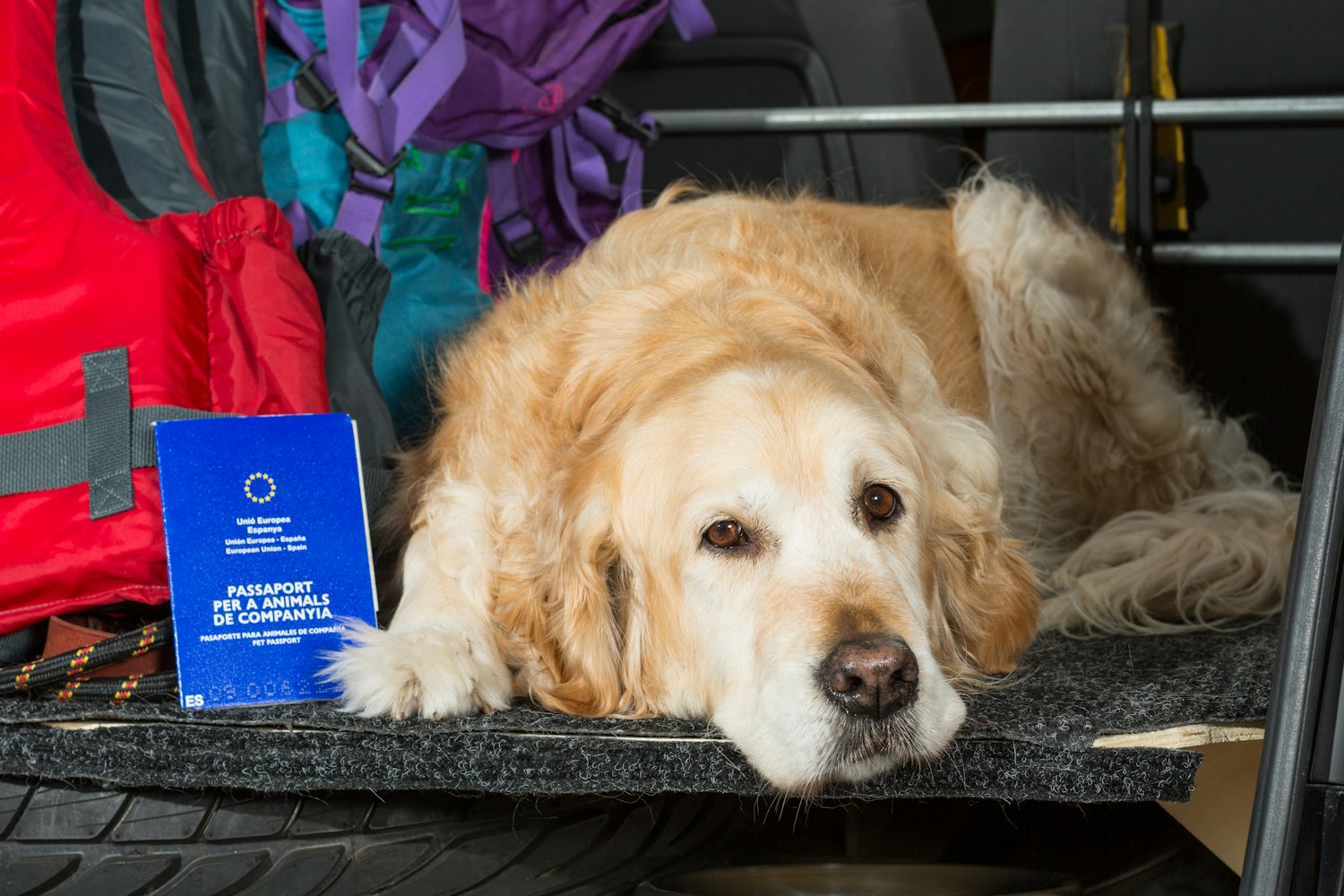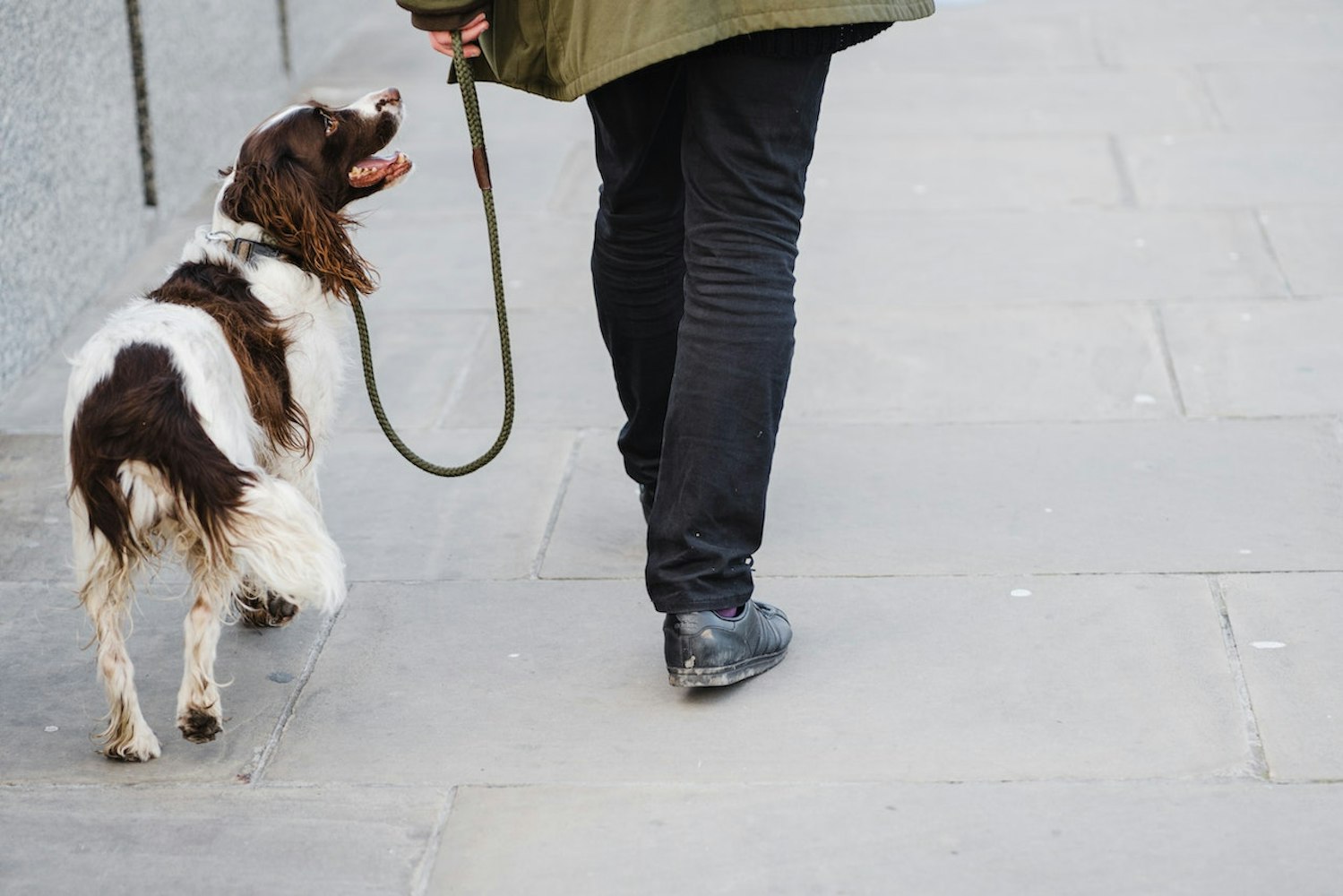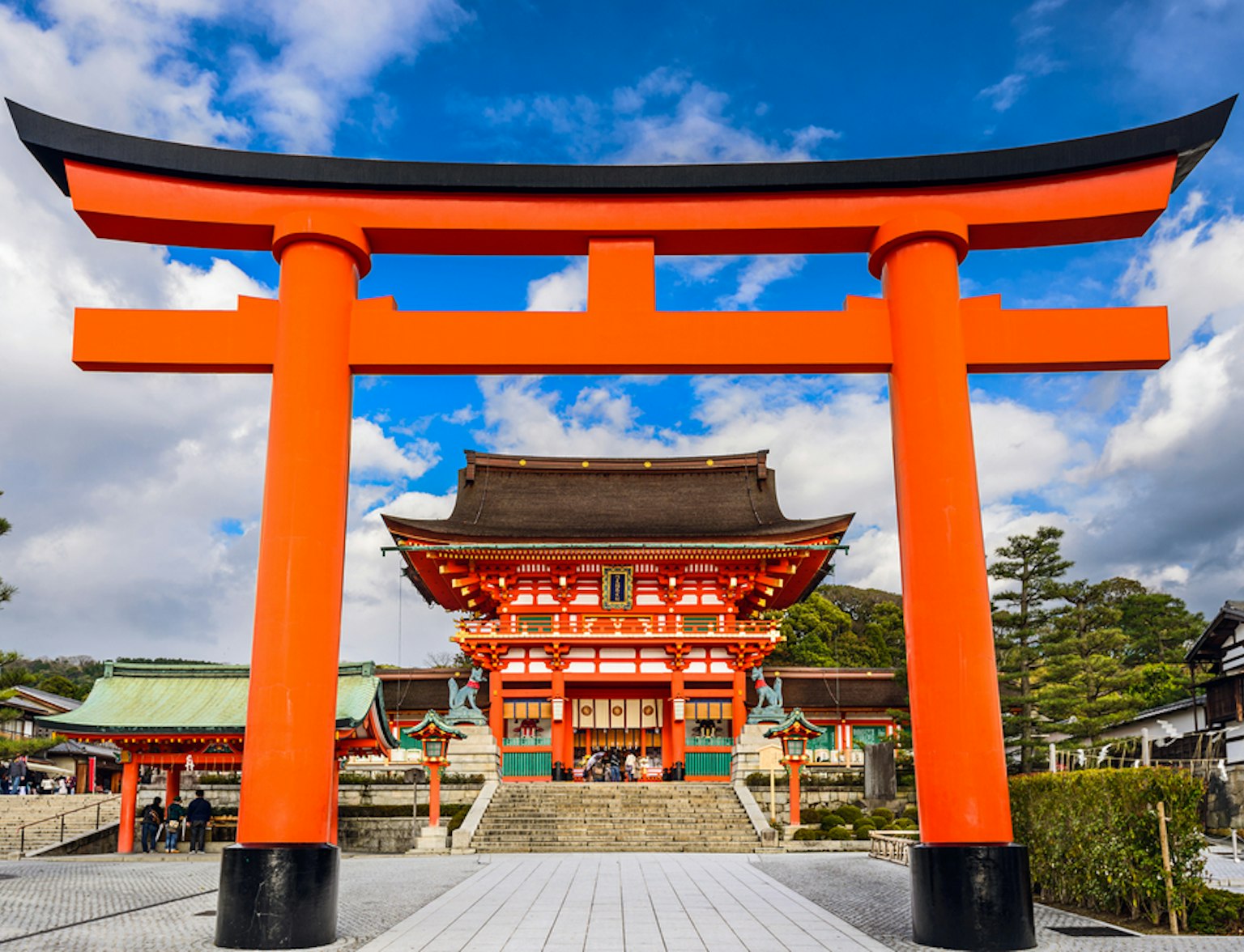

Traveling to a new country can be an exciting adventure, but when you're traveling with a furry friend, it's important to take extra precautions to ensure a safe and comfortable trip. Japan is a beautiful country with a rich culture, and for pet owners, it offers a unique opportunity to explore the country with your beloved companion. However, traveling with pets in Japan requires careful planning and preparation, as the country has strict regulations when it comes to pet import and transportation.
In this ultimate guide, we'll walk you through everything you need to know about traveling with pets in Japan. From understanding Japan's pet policies to finding pet-friendly accommodations and transportation options, we've got you covered. So pack your bags, grab your pet's favorite toy, and let's embark on an unforgettable journey through Japan with your furry best friend.
Japan's pet import regulations are designed to ensure that only healthy animals are allowed into the country. The requirements may vary depending on the country of origin, the type of animal, and the purpose of travel. In general, you will need to obtain the following documents before traveling with your pet to Japan:

A valid pet passport or certificate of veterinary inspection
Proof of rabies vaccination and antibody titer test results
A health certificate issued by an accredited veterinarian
A declaration form for importing pets
It's important to note that these requirements may change from time to time, so it's always best to check with the Japanese embassy or consulate in your country before making any travel plans.
Preparing for your pet's travel to Japan should start at least 40 days before your departure date. This is because your pet will need to undergo a series of medical tests and treatments to comply with Japan's pet import regulations. Here are the steps you need to take:
1. Microchip your pet
All dogs and cats entering Japan must be microchipped with an ISO 11784/11785 compliant microchip. Make sure that the microchip is implanted before your pet receives a rabies vaccination.
2. Get your pet vaccinated against rabies
All dogs and cats must be vaccinated against rabies at least 30 days before entering Japan. Make sure that the vaccination is administered by a licensed veterinarian and that the vaccine is approved for use in Japan.
3. Get your pet's antibody titer test done
After your pet receives a rabies vaccination, they must undergo an antibody titer test to ensure that they have developed sufficient immunity to the disease. The test must be done at an approved laboratory, and the results must be included in your pet's health certificate.
4. Obtain a health certificate and other documents
Your pet's health certificate must be issued by an accredited veterinarian and include information about their microchip, rabies vaccination, antibody titer test results, and other medical treatments. You may also need to obtain a declaration form for importing pets and other documents required by your airline.
By following these steps, you can ensure that your pet is fully prepared for travel to Japan and that you have all the necessary documents to comply with the country's pet import regulations.
A pet passport serves as a form of identification for your pet and contains all the information that Japanese authorities need to verify your pet's health and vaccination status. This includes information about your pet's microchip, rabies vaccination, and antibody titer test results. The pet passport also contains your pet's photo, breed, and other relevant information, making it easy for airline staff and border officials to identify your pet.

In addition to being a form of identification, a pet passport can also serve as a record of your pet's medical history. This can be useful in case your pet needs medical attention while traveling or if you need to provide proof of your pet's vaccination status when returning to your home country.
It's important to keep your pet's passport up-to-date, as it expires after a certain period of time. In general, pet passports are valid for the lifetime of your pet or until the rabies vaccination expires. If your pet's passport is about to expire or if you need to update any information, make sure to do so before your trip to Japan.
To obtain a pet passport, you will need to visit an accredited veterinarian who can issue the passport and ensure that your pet is up-to-date with all the necessary vaccinations and medical treatments. It's important to note that not all countries issue pet passports, so you may need to check with your local authorities to see if they are available in your area.
Finding pet-friendly accommodations in Japan can be a challenge, especially if you're looking for something beyond basic pet-friendly hotels. However, with some research and planning, you can find a variety of pet-friendly accommodations that cater to both you and your furry friend's needs.

Pet-friendly hotels are the most common type of pet accommodation in Japan. Many hotels allow pets, but some have restrictions on the size or number of pets allowed. Some hotels also charge an additional fee for pets. It's important to check with the hotel in advance to ensure that they allow pets and to find out about any additional fees or restrictions.
If you're looking for a more traditional experience, you can also consider staying at a ryokan, a traditional Japanese inn. Some ryokans also allow pets, although they may have stricter rules and regulations than hotels. Make sure to check with the ryokan in advance to ensure that your pet is welcome and to find out about any restrictions or additional fees.
Traveling with your pet in Japan can be a great experience, but it's important to know the rules and regulations when it comes to pet-friendly transportation. Japan has an efficient transportation system, but not all forms of transportation are pet-friendly. Here are some tips for navigating Japan's pet-friendly transportation:

Image Credit: Wikimedia
Trains are the most convenient form of transportation in Japan, and many of them are pet-friendly. However, there are some rules and regulations that you need to be aware of before traveling with your pet on a train. In general, the following rules apply:
Only small pets that can fit inside a carrier or bag are allowed on trains.
Pets must be kept inside their carrier or bag at all times.
You must purchase a pet ticket in addition to your own ticket.
You must board and alight at designated pet-friendly carriages or areas.
It's important to note that the rules and regulations may vary depending on the train company and the specific train line. Make sure to check with the train company in advance to ensure that your pet is allowed and to find out about any additional rules or restrictions.
Japan Railways (JR) offers a special pet seat option for pet owners traveling on certain train lines. These pet seats are located in a designated pet-friendly carriage and offer a more comfortable and convenient way to travel with your pet. The pet seats are equipped with a special pet carrier that can be attached to the seat, allowing your pet to travel comfortably and safely.

To use the pet seat option, you need to reserve your seat in advance and purchase a pet ticket. The pet seat option is only available on certain train lines, so make sure to check with JR in advance to ensure that the train you plan to take offers this option.
When packing for a trip to Japan with your pet, it's important to make sure that you have everything they need to stay comfortable and healthy. Here are some essential tips for packing for your pet's suitcase:
Food and water bowls: Make sure to bring your pet's regular food and water bowls, as well as any necessary food and treats. Collapsible bowls are a great option for travel.
Leash and collar/harness: You will need a leash and collar or harness for your pet, as well as any necessary identification tags.
Carrier: If you're traveling by plane or train, you will need a carrier for your pet. Make sure to choose a carrier that meets the airline or train company's requirements.
Bedding: Bring your pet's favorite blanket or bed to make them feel more at home.
Medications: If your pet requires medication, make sure to bring enough for the duration of your trip.
Toys: Bring a few of your pet's favorite toys to keep them entertained during the trip.

Take your pet with you on a trip within 2.5hours from Fukuoka.
If you need to purchase pet supplies in Japan, there are a variety of options available. Many pet stores carry food, toys, and other supplies, and there are also larger pet supply stores in some cities. However, it's important to note that some pet supplies may be different or harder to find than in your home country.

If your pet has any specific dietary requirements or medical needs, it's a good idea to bring enough supplies with you for the duration of your trip. Make sure to check with Japanese authorities in advance to ensure that any medications or supplements you're bringing are allowed into the country.
When traveling with your pet in Japan, it's important to be mindful of local customs and etiquette when it comes to public spaces. Japan has a strong culture of respect for public spaces, and being respectful of this culture can help ensure that your trip is a positive experience for both you and your pet.
One of the most important aspects of respecting public spaces in Japan is understanding the local customs and etiquette. Here are some general guidelines to keep in mind when traveling with your pet in Japan:
Keep your pet on a leash: It's important to keep your pet on a leash at all times when in public spaces, including parks and streets. This helps ensure that your pet does not run off and cause any accidents or disturbances.
Pick up after your pet: Always clean up after your pet, and dispose of waste in designated areas. In Japan, there are often designated areas for pet waste, so it's important to be mindful of this and dispose of waste properly.

Avoid crowded areas: Try to avoid crowded areas, such as busy streets and public transportation, as much as possible. If you do need to travel in a crowded area, keep your pet close to you and be mindful of other people.
Respect cultural sites: Many cultural sites in Japan, such as temples and shrines, have strict rules regarding pets. Be sure to check with the site in advance to ensure that your pet is allowed and to find out about any additional rules or restrictions.
In addition to following local customs and etiquette, it's important to ensure that your pet is well-behaved in public spaces. Here are some tips for ensuring your pet's good behavior:
Socialize your pet: Socialization can help reduce the likelihood of your pet acting out in public spaces. Make sure that your pet is comfortable around people and other animals.
Train your pet: Basic obedience training, such as sit and stay, can help ensure that your pet is well-behaved in public spaces.

Be mindful of your pet's behavior: Keep an eye on your pet's behavior, and be prepared to remove them from a situation if they become agitated or uncomfortable. This can help prevent any accidents or disturbances.
Carry treats: Treats can be a great way to reward your pet for good behavior and reinforce positive behavior in public spaces. Make sure to bring your pet's favorite treats along with you on your trip.
Traveling to Japan with your pet can be a great opportunity to explore the country's rich culture and history, and there are many pet-friendly attractions and adventures to discover. Here are some examples of pet-friendly attractions in Japan:
Parks and gardens: Japan is known for its beautiful parks and gardens, and many of them are pet-friendly. Some popular pet-friendly parks include Yoyogi Park in Tokyo and Maruyama Park in Kyoto. These parks are great for a leisurely stroll or picnic with your pet.
Beaches: Japan has some beautiful beaches that are perfect for a day of fun in the sun with your pet. Some pet-friendly beaches include Shirahama Beach in Wakayama and Morito Beach in Chiba. Be sure to check local regulations and rules for pets on the beach.
Onsen (hot springs): Japan is famous for its onsen, and some onsen are pet-friendly. One example is the Dogo Onsen in Ehime, which has a special dog-friendly bath. Your pet may also enjoy the experience of being bathed in a traditional Japanese onsen.

Discover these pet-friendly attractions with a private vehicle.
In addition to visiting pet-friendly attractions, there are many other fun adventures that you can have with your pet in Japan. Here are some ideas:

Hiking: Japan has many beautiful hiking trails that you and your pet can explore together. Some popular hiking destinations include Mount Takao in Tokyo and Mount Koya in Wakayama. Remember to check for pet regulations and guidelines before hiking.
Camping: Camping is a popular pastime in Japan, and there are many pet-friendly campsites where you and your pet can spend the night under the stars. Some popular pet-friendly campsites include Lake Kawaguchi Campground in Yamanashi and Biwako Valley Campground in Shiga. Bring appropriate camping gear and food for your pet.
Sightseeing: Japan has many famous landmarks and attractions that are pet-friendly, such as the Fushimi Inari Shrine in Kyoto and the Tokyo Tower in Tokyo. You and your pet can have a memorable experience while discovering Japan's cultural and historical heritage.

Visit Fushimi Inari Shrine with your pet.
The pet care industry in Japan is booming, and there are plenty of services available to help pet owners care for their furry friends. One of the most popular options for pet owners is pet hotels. These are specialized accommodations for pets, where they can stay overnight or for extended periods of time. Many pet hotels offer amenities such as play areas, grooming services, and even pet-friendly meals.

Pet cafes are another popular trend in Japan, where people can enjoy drinks and snacks while spending time with animals. There are many pet cafes in Japan that specialize in different types of animals, such as cats, dogs, and even rabbits. These cafes offer a fun and unique way to spend time with your pet while exploring Japan's vibrant culture.
Using pet care services in Japan can provide many benefits for both you and your pet. One of the biggest perks is that it allows your pet to have fun and stimulating experiences while you're out and about exploring the country. Pet hotels, cafes, and grooming services can provide your pet with opportunities for socialization and play, helping to keep them happy and healthy while on the road.

Another benefit of using pet care services is that it can give you more freedom and flexibility during your travels. You can enjoy activities and adventures that may not be pet-friendly, knowing that your pet is being well-cared for in your absence. This can be especially helpful if you're traveling to Japan to see popular tourist attractions or participate in activities that aren't suitable for pets.
Traveling with pets in Japan can be an unforgettable experience, but it requires careful planning and preparation. By following the guidelines and tips we've provided in this guide, you can ensure that your pet is safe, comfortable, and happy throughout your trip. From exploring the historic temples and shrines of Kyoto to hiking in the majestic mountains of Nagano, there are plenty of pet-friendly places to visit in Japan. Just be sure to pack all the necessary documents and supplies, respect the local culture and customs, and be mindful of your pet's needs and preferences.
Traveling with pets can be challenging at times, but it's also an opportunity to create lasting memories and deepen your bond with your furry companions. By taking the time to plan ahead and follow the rules and regulations, you can enjoy a stress-free and rewarding trip to Japan with your pets. So why wait? Start planning your next adventure with your furry friend today!



